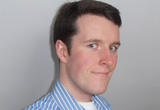 On Monday 21 April, the Royal Albert Hall played host to a curious event. Imagining the Future of Medicine was an afternoon filled with a variety of speakers and artistic performances. Its goal was, in equal parts, to challenge and inspire its audience—a melange of doctors, students, and the greater public—to consider novel ways of thinking and innovative new avenues for healthcare.
On Monday 21 April, the Royal Albert Hall played host to a curious event. Imagining the Future of Medicine was an afternoon filled with a variety of speakers and artistic performances. Its goal was, in equal parts, to challenge and inspire its audience—a melange of doctors, students, and the greater public—to consider novel ways of thinking and innovative new avenues for healthcare.
The event was hosted by comedian Dara O’Briain, who was being, in his own words, glib amid the smart people. There was a diverse breadth of subjects covered. From Leo Cheng talking about the humanitarian work of ‘mercy ships’ off the west coast of Africa to Dr Katherine Sleeman speaking on palliative care and the quest after a good death. From Alison Balsom exploring the charity work of Brass for Africa to Professor Sarah-Jane Blakemore explaining her work on adolescent brains and that teenagers aren’t broken, they’re just different.
Performances by the likes of the Kaos Choir for Deaf and Hearing Children were heart warming. The choir, which filled the stage of the Royal Albert Hall with children as young as four, sang and signed their songs simultaneously. The audience responded by ‘clapping’ in British Sign Language.
While I greatly enjoyed the day and found many of the talks interesting, there were some that couldn’t quite carry me along with their blend of innovation and optimism. For example, Dr Jamil El-Imad demonstrated a prototype for a slimline EEG headband to wear on a daily basis. Combined with an algorithm for analysing EEGs and cloud computing, he hopes to create a real time text service to alert patients with epilepsy that they will soon have a seizure, allowing them to make themselves safe.
It sounds like a revolutionary idea, but Dr El-Imad was vague about how much warning his device could give patients in advance. Furthermore, I worry that, if this technology became a reality, patients with epilepsy might be discriminated against, for car insurance et cetera, for not wearing such technology. Some people will always find a cloud for every silver lining.
Ali Parsa, former chief executive of Circle, also had a product to push. It was a smartphone app called Babylon, and came with many bells and whistles. Through his app a person can view their medical records, text queries to their doctor (with photo or video attachments—this is the 21st century after all), book phone, video or face to face appointments with a nurse, GP or specialist of their choosing, and dictate which pharmacy to collect their prescriptions from. It was awing in the control and access that it might give to patients, but a teenage diet of science fiction novels has made me instinctually wary of futuristic products called Babylon.
For one thing, accessing medical records on your phone was presented matter of factly, as if the furores over care.data and phone hacking had never happened at all.
A far larger concern I have is how this future facing technology will fare in an environment where there are places in the NHS that still rely on Windows 98. The IT system of the NHS has been famously refractory to attempts at modernisation. Will it play nice, or at all, with a cheeky new app like this?
Furthermore, Parsa began by stating that 70% of the world’s population find access to healthcare expensive, difficult, or inconvenient. The Babylon app is intended to address that problem, but how many of that quoted 70% have a smartphone? What percentage of the UK patient population has a smartphone for that matter? The app seems ideal for the hip young professionals who live on their phones, but I wonder what use it is for everyone else, the majority of patients?
I am being too negative. It was a highly interesting day, which gave me a lot to think about. But I could not shake free of the reality I live in to explore all this imagination and innovation fully. You might call it cynicism, but maybe events like these need a little grounding.
To quote American poet Lawrence Ferlinghetti, “If you’re too open-minded, your brains will fall out.”
Rhys Davies is a final year medical student at Imperial College London. He is currently working as a Clegg Scholar in The BMJ offices.
